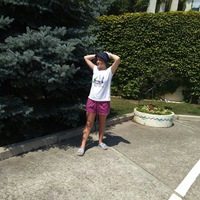
Выпишите из этого текста все неправильные глаголы:Ideal society. A sir Thomas Мор was born in 1478.
He read law, but similarly addicted to many objects, including studied Greek. He wrote Utopia at the beginning of 16th century, in the early years of great motion of Renaissance, when people pulled out forward new ideals and affronted to old convinced of all Western Europe. Utopia was published on Latin in 1516, and later translated into the English language. A sir Thomas Мор was the influential adviser of King Henry 8th, but he prevented to the divorce of king and refused to acknowledge him as a head of church in England. For it king planted him in a dungeon and ordered to cut off a head. Roman Catholic Church later added him on the face of saints. For the thousand years on earth, a man constantly dreamed about the best society - society that will banish an evil and difficulties, instead of that to stand them. Philosophers and poets describe ideal society in religious and scientific treatises and in artistic works; and small part from them are more known, than Utopia of Sir Thomas Мора. A word is utopia, that Thomas Мор made from two Greek words "nowhere earth", ideal society came in a modern language with a value. In the book of Thomas Мора conversation is described between him and by the invented seaman by name Хитлодэй. A seaman told about a visit by him mythical island named Utopia, where people learned to create society without hunger, tyranny and exploitation of their colleagues. Хитлодэй compares all things that he saw in Utopia with terms in England at that time; and a contrast shows clear, as far as much evil people ignored until now. Firstly, an association is inhabited on an island Utopia it was not divided into separate social classes. All people used equal statuses and rights. There was not a peculiar, because Утопиане believed that over a peculiar had brought to envy, hatred, quarrelsomeness and розни. All carried the certain type of clothing, and nobody could take the liberty of to carry jeweller decorations or dresses that would testify to superiority of one man above other. There were not idle or unavailing classes. All worked, although not beyond measure, 7 hours in a day was considered sufficient. It was settled nobody to obtrude opinion or religious persuasions to somebody, except free discussions. All, who tried to change the looks of people under constraint banished from an island. People could freely consist of marriage, a partner was their choice, parents or relatives could not force them to it. They could freely divorce similarly, if marriage was unsuccessful. If someone suffered from incurable illness, he could demand to kill itself. In Utopia, the most clever young people were released from physical or unskilled work. Instead, they studied to be sages or philosophers in an association. But they were still, as ordinary members of association, so that they were not the privileged class. Members of government, even king got out philosophers; but king could be removed from a throne, if it showed a becoming tendency a tyrant. King was single with people, freely engaged in sea-born trade with other earth, modestly enjoying it, all religions were worthy and people were divided by things. Utopia of Thomas Мора was remarkable philosophical work, but similarly provided in a number of theories and ideas that were hot обсуждаемы and for them even fought in subsequent eyelids, in dense to modern time. 0
0
 0
0
Ответы на вопрос
 Внимание! Ответы на вопросы дают живые люди. Они могут содержать ошибочную информацию, заблуждения, а также ответы могут быть сгенерированы нейросетями. Будьте внимательны. Если вы уверены, что ответ неверный, нажмите кнопку "Пожаловаться" под ответом.
Внимание! Ответы на вопросы дают живые люди. Они могут содержать ошибочную информацию, заблуждения, а также ответы могут быть сгенерированы нейросетями. Будьте внимательны. Если вы уверены, что ответ неверный, нажмите кнопку "Пожаловаться" под ответом.

saw
had
brought
could
take
would
got
fought
 0
0
 0
0

Ответьте подробно. Выпишите из этого текста все неправильные глаголы:
Неправильные глаголы в русском языке — это глаголы, которые не подчиняются общим правилам спряжения и имеют особые формы в настоящем, прошедшем или будущем времени. В тексте, который вы прислали, есть следующие неправильные глаголы:
- быть (буду, будешь, будет, будем, будете, будут) - дать (дам, дашь, даст, дадим, дадите, дадут) - создать (создам, создашь, создаст, создадим, создадите, создадут) - есть (ем, ешь, ест, едим, едите, едят) - хотеть (хочу, хочешь, хочет, хотим, хотите, хотят) - бежать (бегу, бежишь, бежит, бежим, бежите, бегут) - брезжить (брезжу, брезжишь, брезжит, брезжим, брезжите, брезжут) - чтить (чту, чтишь, чтит, чтим, чтите, чтут)
Эти глаголы отличаются от правильных глаголов тем, что они не образуют формы настоящего времени с помощью суффиксов -у, -ю, -ешь, -ет, -ем, -ете, -ут, -ют, а также не образуют формы будущего времени с помощью приставок по- или на-. Они имеют свои особые окончания, которые нужно запомнить.
 0
0
 0
0
Топ вопросов за вчера в категории Английский язык
Последние заданные вопросы в категории Английский язык
-
Математика
-
Литература
-
Алгебра
-
Русский язык
-
Геометрия
-
Английский язык
-
Химия
-
Физика
-
Биология
-
Другие предметы
-
История
-
Обществознание
-
Окружающий мир
-
География
-
Українська мова
-
Информатика
-
Українська література
-
Қазақ тiлi
-
Экономика
-
Музыка
-
Право
-
Беларуская мова
-
Французский язык
-
Немецкий язык
-
МХК
-
ОБЖ
-
Психология
-
Физкультура и спорт
-
Астрономия
-
Кыргыз тили
-
Оʻzbek tili





















